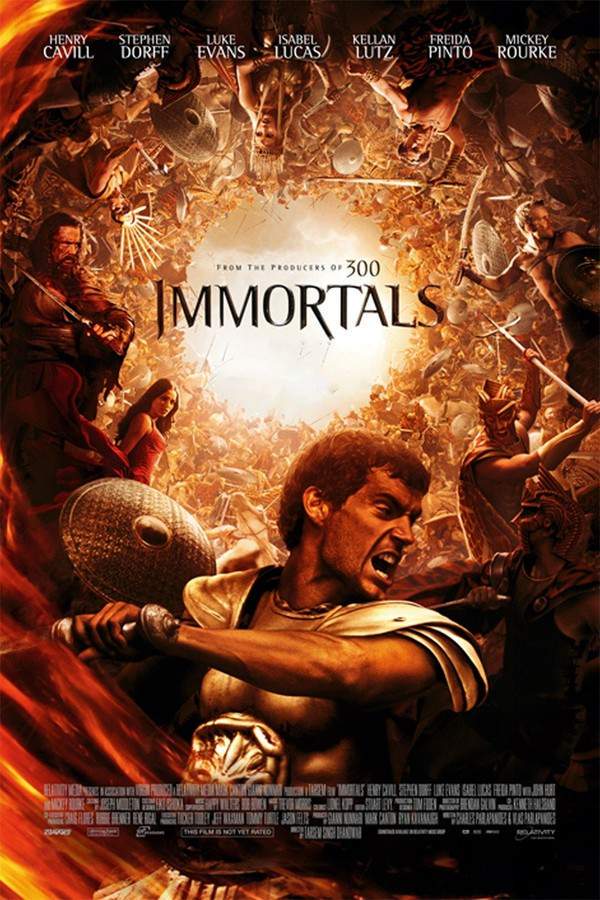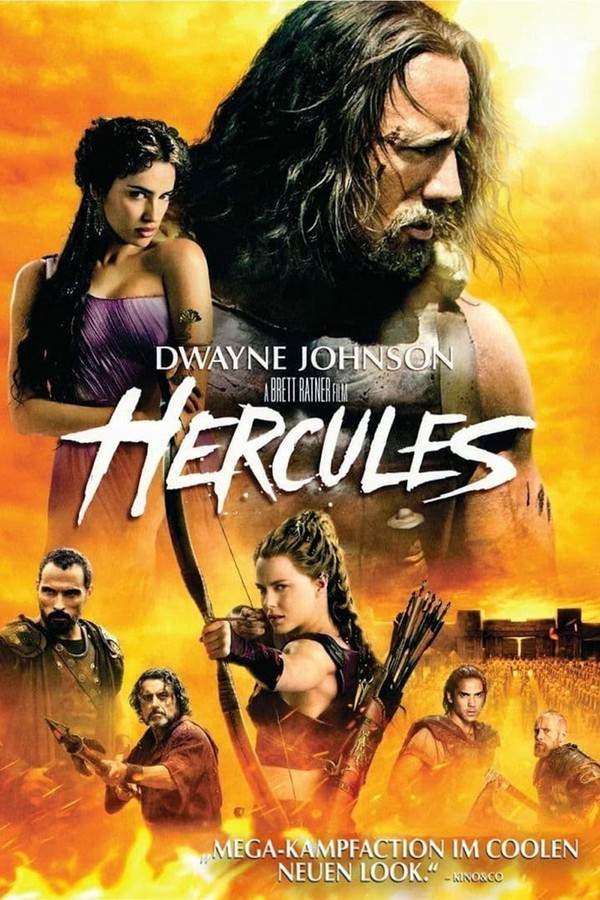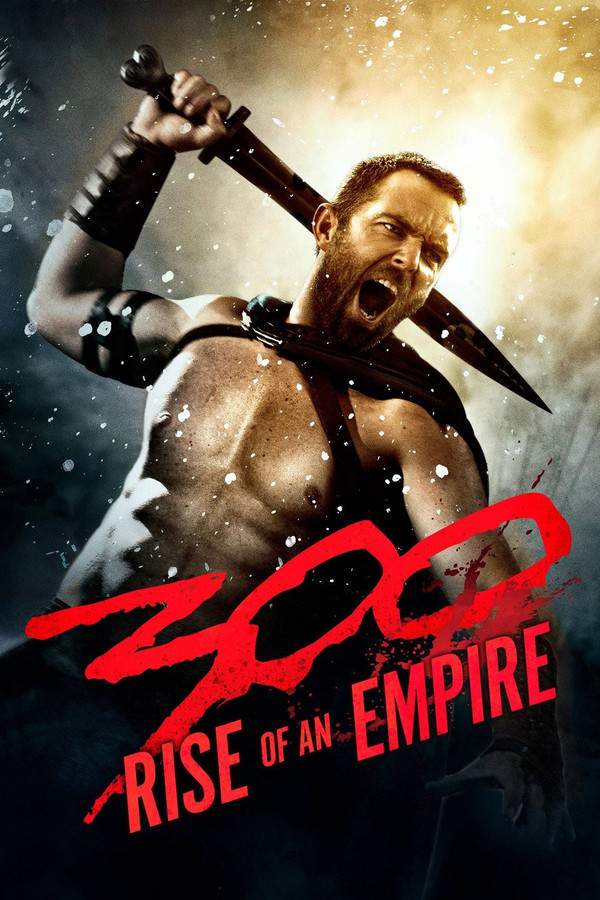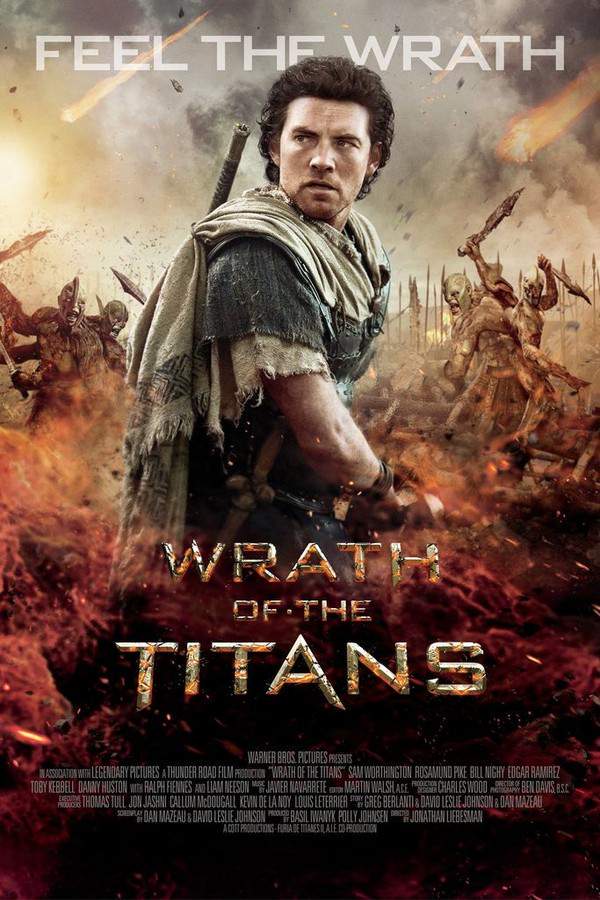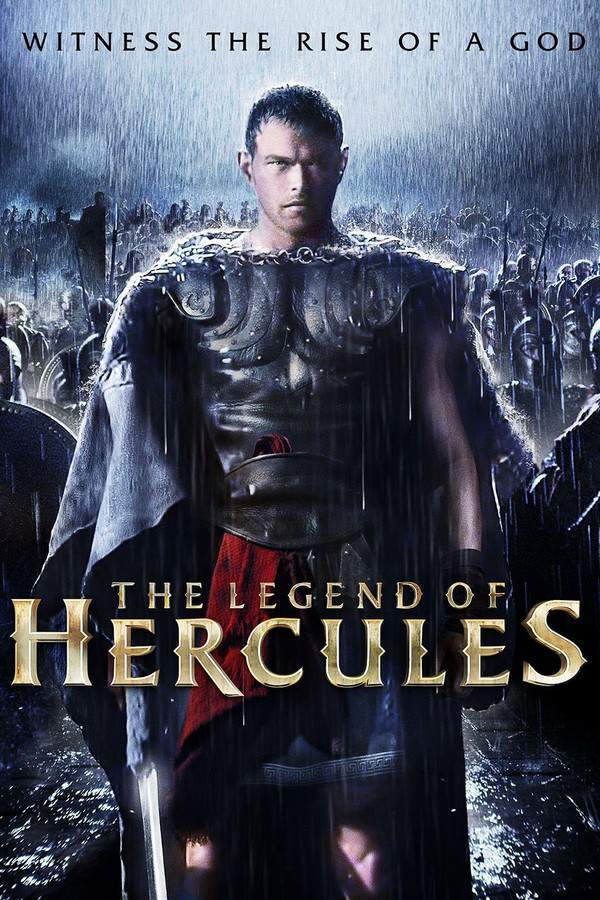Clash of the Titans 1981
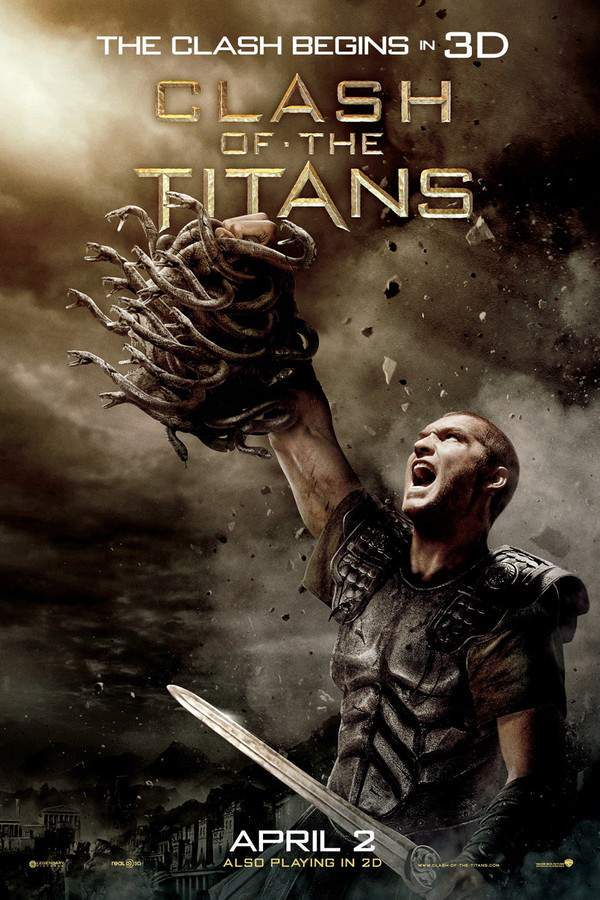
A conflict between immortal beings threatens humanity, and Zeus's demigod son, Perseus, must confront his divine lineage while striving to shield his family. The god of the underworld, Hades, seeks to destroy the Earth, plunging Olympus into turmoil. Perseus undertakes a dangerous quest, facing mythical creatures and formidable foes, to prevent the destruction of the world and protect those he loves.
Does Clash of the Titans have end credit scenes?
No!
Clash of the Titans does not have end credit scenes. You can leave when the credits roll.
Meet the Full Cast and Actors of Clash of the Titans
Explore the complete cast of Clash of the Titans, including both lead and supporting actors. Learn who plays each character, discover their past roles and achievements, and find out what makes this ensemble cast stand out in the world of film and television.
External Links and Streaming Options
Discover where to watch Clash of the Titans online, including streaming platforms, rental options, and official sources. Compare reviews, ratings, and in-depth movie information across sites like IMDb, TMDb, Wikipedia or Rotten Tomatoes.
Ratings and Reviews for Clash of the Titans
See how Clash of the Titans is rated across major platforms like IMDb, Metacritic, and TMDb. Compare audience scores and critic reviews to understand where Clash of the Titans stands among top-rated movies in its genre.

59
Metascore
7.6
User Score


27%
TOMATOMETER

40%
User Score

69
%
User Score
Take the Ultimate Clash of the Titans Movie Quiz
Challenge your knowledge of Clash of the Titans with this fun and interactive movie quiz. Test yourself on key plot points, iconic characters, hidden details, and memorable moments to see how well you really know the film.
Clash of the Titans Quiz: Test your knowledge on the 1981 classic film Clash of the Titans and its mythological characters and plot twists.
Who is the father of Perseus?
Acrisius
Poseidon
Zeus
Calibos
Show hint
Awards & Nominations for Clash of the Titans
Discover all the awards and nominations received by Clash of the Titans, from Oscars to film festival honors. Learn how Clash of the Titans and its cast and crew have been recognized by critics and the industry alike.
9th Saturn Awards 1982
Best Supporting Actor
Best Supporting Actress
Full Plot Summary and Ending Explained for Clash of the Titans
Read the complete plot summary of Clash of the Titans, including all major events, twists, and the full ending explained in detail. Explore key characters, themes, hidden meanings, and everything you need to understand the story from beginning to end.
In the Ancient Greek era, the power-hungry King Acrisius of Argos, portrayed by Donald Houston, locks away his daughter Danaë (played by Vida Taylor) to prevent the prophecy that foretells his demise should she bear a son. Yet, in a twist of divine fate, the mighty Zeus, embodied by Laurence Olivier, manages to impregnate her, despite her confinement. Once Acrisius learns of the pregnancy, he hastily casts both Danaë and her newborn son, Perseus, out to sea in a wooden coffin, believing he can escape his doomed future. In retaliation for Acrisius’s actions, Zeus commands Poseidon (portrayed by Jack Gwillim) to unleash the monstrous Kraken upon Argos, wreaking havoc and fulfilling the dark prophecy.
As the destruction unfolds atop Mount Olympus, Zeus, in a fit of divine retribution, crushes a clay figurine representing Acrisius in his grasp, sealing the tyrant’s fate. Miraculously, Poseidon ensures that Danaë and baby Perseus safely drift to the shores of the idyllic island of Seriphos. Fast forward several years, and the once vulnerable infant Perseus (now played by Harry Hamlin) has grown into a strikingly handsome young man, ready to carve out his destiny.
In the kingdom of Joppa, a sinister figure emerges: Calibos, magnificently brought to life by Neil McCarthy. This youth, son of the sea goddess Thetis (portrayed by Maggie Smith), once stood on the brink of marrying the beautiful Princess Andromeda (played by Judi Bowker), the cherished scion of Queen Cassiopeia (Sian Phillips). However, Calibos, facing the wrath of Zeus for his malicious deeds—most notably, the destruction of Zeus’s sacred flying horses—has been cursed into a grotesque, satyr-like creature, cast away to live in the swamps next to Joppa.
Driven by anger over her son’s fate, Thetis swears that if Calibos cannot wed Andromeda, no other man will be allowed to do so. With Zeus’s blind favoritism of his son and Thetis’s wrath brewing, she magically transports Perseus from the idyllic Seriphos to the tumultuous realm of Joppa. There, he encounters Ammon, an elderly scholar and playwright, personified by Burgess Meredith, who enlightens him about the cruel fate befalling Andromeda. Every suitor must answer a riddle to win her heart, and those who fail are doomed to burn at the stake. As fate intertwines their paths, Perseus reveals to Ammon his royal lineage and his longing to reclaim his title in Argos, capturing the scholar’s intrigue.
Realizing the dangers faced by his son, Zeus intervenes from the celestial realm, equipping Perseus with gifts: a helmet granting invisibility, a sword sharp enough to cut through rock, and a golden shield to protect him. So undeterred, Perseus stealthily visits Andromeda’s quarters, using his helmet as a cloak of invisibility. During these nightly excursions, he discovers that a monstrous vulture spirit abducts Andromeda, whisking her away to the east. Determined to save her, Perseus captures the last of Zeus’s sacred stallion, Pegasus, and follows the spirit to learn Calibos’s riddle. Engaging in a fierce duel against the outcast, Perseus barely escapes with his life but loses his precious helmet in the chaos.
When the time comes for the next suitor’s challenge, Perseus boldly steps forth. Clenching Calibos’s severed hand—recognizable by a pearl and gold ring as the solution to the riddle—Perseus successfully claims Andromeda’s hand. However, his graciousness extends to Calibos, as he implores Joppa for mercy towards the deformed prince, hoping for an end to the curse. Meanwhile, in a moment of vengeance, Calibos’s mother, Thetis, conspires against the city, igniting rage within her son at Perseus’s triumph. During the wedding festivities, Queen Cassiopeia foolishly compares Andromeda’s beauty to Thetis, igniting the goddess’s wrath once more.
In a display of divine fury, Thetis commands that Andromeda be sacrificed to the Kraken within thirty days; otherwise, Joppa will face annihilation. Charged with the mission to vanquish this monstrous entity, Perseus rallies a brave band of soldiers, joined by Andromeda and Ammon, to embark on a perilous journey. Seeking counsel from the Stygian Witches—three ancient, blind seers (played by Flora Robson, Anna Manahan, and Freda Jackson)—Ammon proposes they explore this obscure territory.
However, calamity strikes when Calibos captures Pegasus, leading to a challenging quest filled with both physical tests and grim adventures. Throughout this chaos, Zeus dispatches Athena (embodied by Susan Fleetwood) to provide assistance in the form of a mechanical counterpart to Bubo, her cherished owl.
Finally, during a fraught encounter with the Stygian Witches, Perseus cunningly acquires their magical eye, which grants him the guidance he needs to confront the fearsome Medusa, a creature once beautiful, now transformed into a monstrosity by the jealous goddess Aphrodite (portrayed by Ursula Andress). It is said that seeing her gaze turns even the mightiest beings to stone. With courage and determination, Perseus banishes the Witches’ lingering hold on him and sets off for the underworld, ready to face Medusa in her temple.
Through treacherous paths and fierce battles, Perseus’s determination shines; yet, many of his companions meet grim fates at the hands of Medusa and her vile kin. With bravery, he manages to slay the fearsome guardian Dioskilos and ultimately faces Medusa herself, utilizing the reflective properties of his shield to avoid her petrifying gaze, finally collecting her head.
As he bravely returns, tragedy strikes when Calibos interrupts their camp, unleashing a swarm of giant scorpions from the spilled blood of Medusa. In a test of wills, Perseus manages to triumph over Calibos, using Aphrodite’s sword to strike down his nemesis before racing to rescue Andromeda from the clutches of doom.
Back in Joppa, Perseus arrives just in time, battling through strenuous trials to turn the tide against the Kraken. Bubo, once again proving his allegiance, aids him until at last, Perseus wields the head of Medusa to stymie the colossal Kraken, solidifying his legend as the hero of a generation.
In a majestic finality, the gods bear witness to the victorious outcome, affirming that Perseus and Andromeda shall lead happy lives while inspiring countless tales of valor and virtue. Their likeness, alongside Pegasus and Cassiopeia, shall remain immortalized in the stars—a perpetual reminder of heroism and the indomitable spirit of love and sacrifice.
Uncover the Details: Timeline, Characters, Themes, and Beyond!

Coming soon on iOS and Android
The Plot Explained Mobile App
From blockbusters to hidden gems — dive into movie stories anytime, anywhere. Save your favorites, discover plots faster, and never miss a twist again.
Sign up to be the first to know when we launch. Your email stays private — always.
Watch Trailers, Clips & Behind-the-Scenes for Clash of the Titans
Watch official trailers, exclusive clips, cast interviews, and behind-the-scenes footage from Clash of the Titans. Dive deeper into the making of the film, its standout moments, and key production insights.
Clash of the Titans Themes and Keywords
Discover the central themes, ideas, and keywords that define the movie’s story, tone, and message. Analyze the film’s deeper meanings, genre influences, and recurring concepts.
Clash of the Titans Other Names and Titles
Explore the various alternative titles, translations, and other names used for Clash of the Titans across different regions and languages. Understand how the film is marketed and recognized worldwide.
Articles, Reviews & Explainers About Clash of the Titans
Stay updated on Clash of the Titans with in-depth articles, critical reviews, and ending explainers. Explore hidden meanings, major themes, and expert insights into the film’s story and impact.
Similar Movies To Clash of the Titans You Should Know About
Browse a curated list of movies similar in genre, tone, characters, or story structure. Discover new titles like the one you're watching, perfect for fans of related plots, vibes, or cinematic styles.
Quick Links: Summary, Cast, Ratings, More

What's After the Movie?
Not sure whether to stay after the credits? Find out!
Explore Our Movie Platform
New Movie Releases (2026)
Famous Movie Actors
Top Film Production Studios
Movie Plot Summaries & Endings
Major Movie Awards & Winners
Best Concert Films & Music Documentaries
Movie Collections and Curated Lists
© 2026 What's After the Movie. All rights reserved.






















